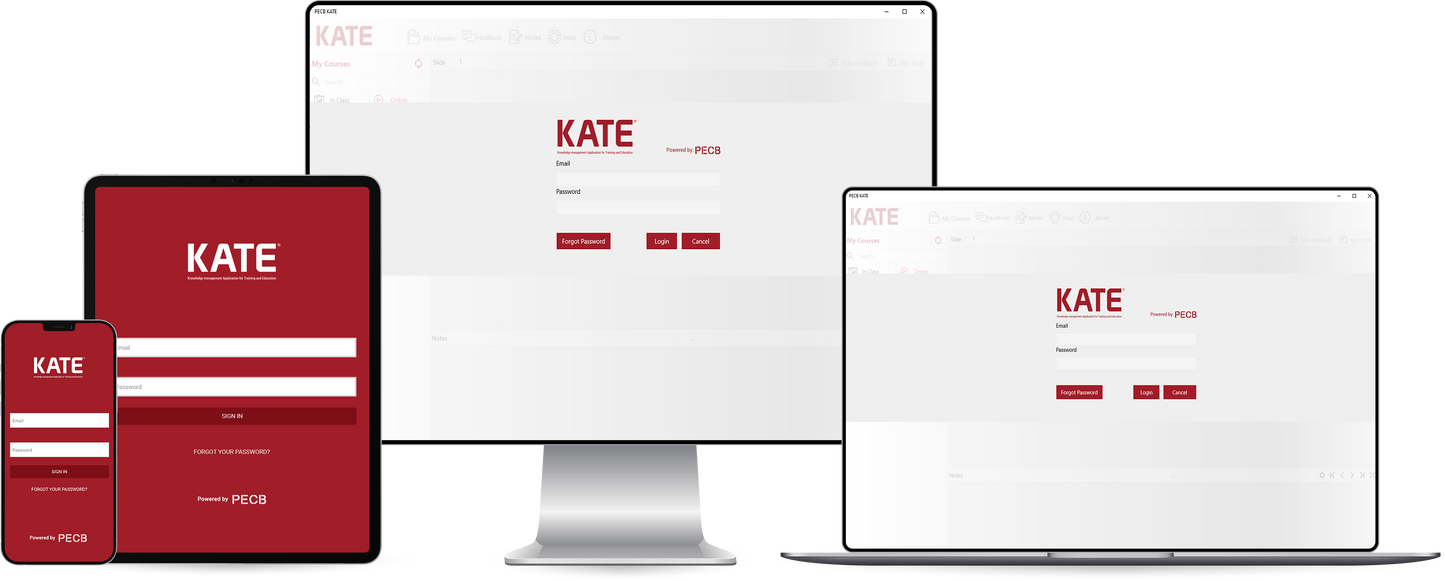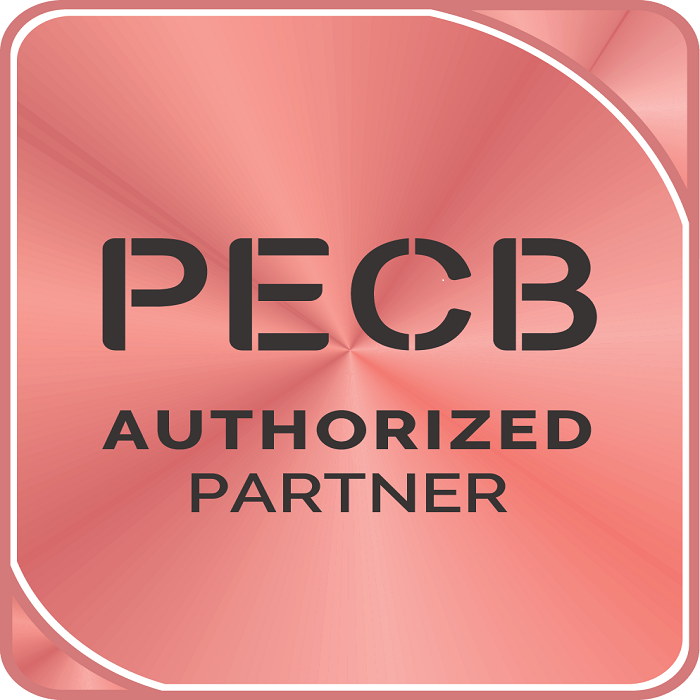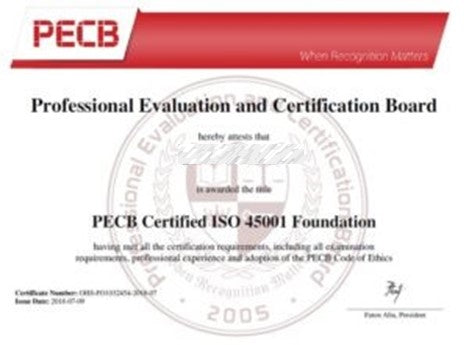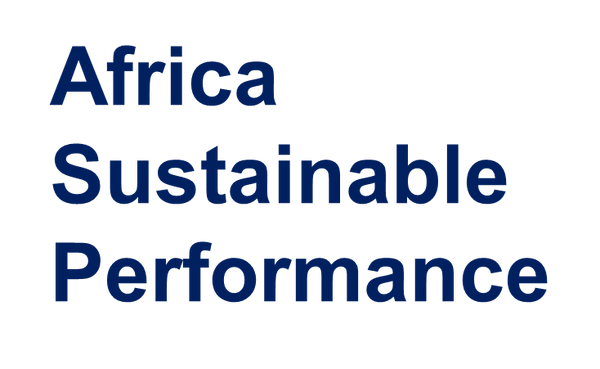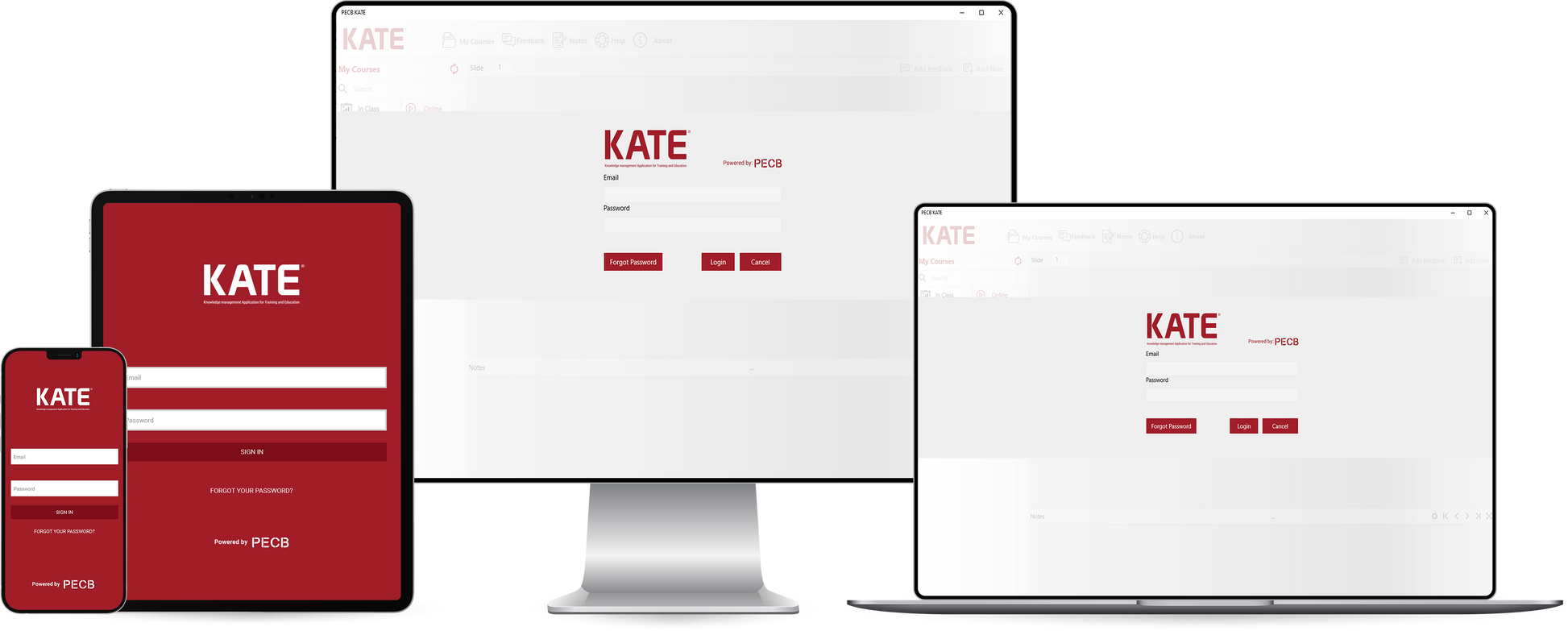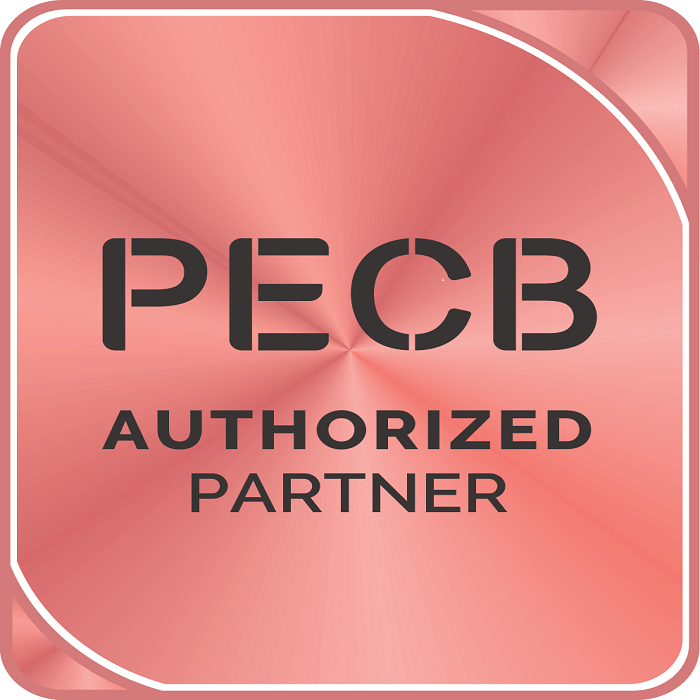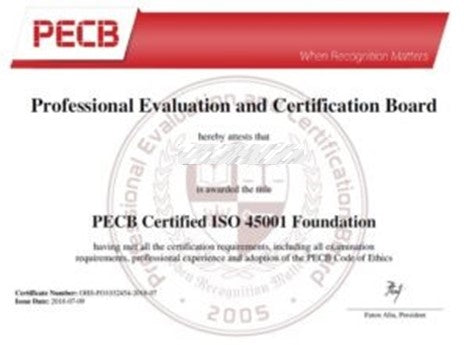Africa Sustainable Performance
PECB Certified ISO 22000 Lead Auditor | Self-study training
PECB Certified ISO 22000 Lead Auditor | Self-study training
Couldn't load pickup availability
Partager
Acquire the necessary competencies to audit food safety management systems against the requirements of ISO 22000 based on the guidelines and requirements for auditing management systems provided in ISO 19011 and ISO/IEC 17021-1
Why should you attend ?
The ever-increasing popularity of food safety, as one of the key aspects of the food industry, has boosted demands from organizations to get certified against ISO 22000. Such certification demonstrates commitment from organizations toward the wellbeing of their consumers and provides sustainability in the market. A PECB auditor credential is a formal and independent recognition of your personal competences. It proves that you are qualified to conduct food safety management system (FSMS) audits for a certification body. This training course has been developed to reflect the importance of an effective audit. It strengthens your knowledge and skills to plan and carry out an FSMS audit in compliance with the guidelines for auditing management systems provided in ISO 19011 and the certification process presented in ISO/IEC 17021-1. Through practical exercises, interactive sessions, and discussions, you will be able to gain knowledge on the FSMS and audit techniques. You will also be able to perform an FSMS audit by applying widely recognized audit principles, procedures, and techniques, as well as be able to manage an audit team. After attending the training course, you can take the exam. If you pass, you can apply for the “PECB Certified ISO 22000 Lead Auditor” credential. An internationally recognized “PECB ISO 22000 Lead Auditor” certificate validates your professional capabilities and competences to audit organizations based on the requirements of ISO 22000 and auditing best practices.
Who should attend ?
- Auditors interested in performing and leading food safety management system audits
- Managers or consultants interested in mastering the food safety management system audit process
- Individuals responsible for maintaining conformity to the FSMS requirements in an organization
- Technical experts interested in preparing for a food safety management system audit
- Expert advisors in food safety management
Learning objectives
- Operations of a food safety management system based on ISO 22000
- Relationship between ISO 22000 and other standards and regulatory frameworks
- Requirements of ISO 22000 in the context of an FSMS audit
- Auditor’s role in planning, leading, and following up on a management system audit in accordance with ISO 19011
Examination duration - 3 hours
The PECB Certified ISO 22000 Lead Auditor exam complies with the PECB Examination and Certification Program (ECP) requirements. It covers the following competency domains:
- Domain 1 : Fundamental principles and concepts of a food safety management system
- Domain 2 : Food safety management system (FSMS) requirements
- Domain 3 : Fundamental audit concepts and principles
- Domain 4 : Preparing for an ISO 22000 audit
- Domain 5 : Conducting an ISO 22000 audit
- Domain 6 : Closing an ISO 22000 audit
- Domain 7 : Managing an ISO 22000 audit program
For specific information about exam type, languages available, and other details, please visit the List of PECB Exams and the Examination Rules and Policies.
FAQ
FAQ
FAQ
Course type and price
- The courses in this webpage are PECB certified Self-study Courses.
- The course can be remotely accessed worldwide
- Certification fees are included in the price of the exam.
- A detailed course manual with practical examples is accessible throughout the training.
- If you fail the exam, you can retake it within 12 months at no additional cost.
Course Approach
- You register for an account at PECB website, before or after order to ASP
- Place order to ASP
- After receiving your bank order payment, you will have access to the course materials, in English unless otherwise specified, normally within a couple of working days
- You can remotely access or download the training materials with PECB Kate app.
- You can complete the self-study at home at your pace.
- The self-study and the initial exam are to complete within 4 months from access granted to the course materials.
Exam
- You can book an online exam at PECB website, for free with the exam code provided by PECB, normally within 4 months after your order to DQS HK.
- Well before the online exam, create exam profile at PECB website, download PECB Exams app and install it at your computer.
- The exam is open-book with duration for 3 hours.
- You can book an online exam retake, if required, at PECB website for free with the exam code provided by PECB, normally within 3 months after your initial exam.
Certificat et qualification
- After receiving an email from PECB with exam passing result, you can reply by email to PECB with request for a course certificate.
- If you have the required working experience and project experience specified in course brochure, you can further apply to PECB for the associated qualification.

About PECB
- Professional Evaluation and Certification Board (PECB) is a Personnel Certification Body accredited by The International Accreditation Service (IAS) under ISO/IEC 17024 – Requirements for bodies operating certification of persons.
- PECB is a full member of International Personnel Certification Association (IPC).
- ASP is a Training Partner authorized by PECB.
Eligibility
PECB certifying trainings provided by Africa Sustainable Performance are available to learners residing in Africa in any of the following countries:
- Egypt, Ethiopia, Angola, Benin, Botswana, Burkina Faso, Burundi, Equatorial Guinea, Togo, Eritrea, Cabo Verde, Gambia, Republic of Congo, Morocco, Democratic Republic of Congo, Djibouti, Guinea, Guinea-Bissau, Ghana, Gabon, Zimbabwe, Cameroon, Comoros, Ivory Coast, Kenya, Lesotho, Liberia, Libya, Rwanda, Madagascar, Malawi, Mali, Mauritania, Mauritius, Mozambique, Namibia, South Africa, Niger, Nigeria, Algeria Sierra Leone, Senegal, Seychelles , Sao Tome and Principe, Swaziland, Sudan, Somalia, Tanzania, Tunisia, Uganda, Zambia, Chad and Central African Republic.

